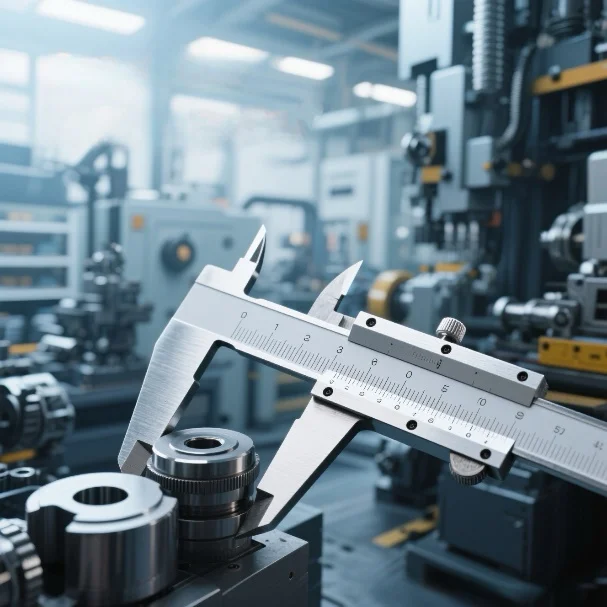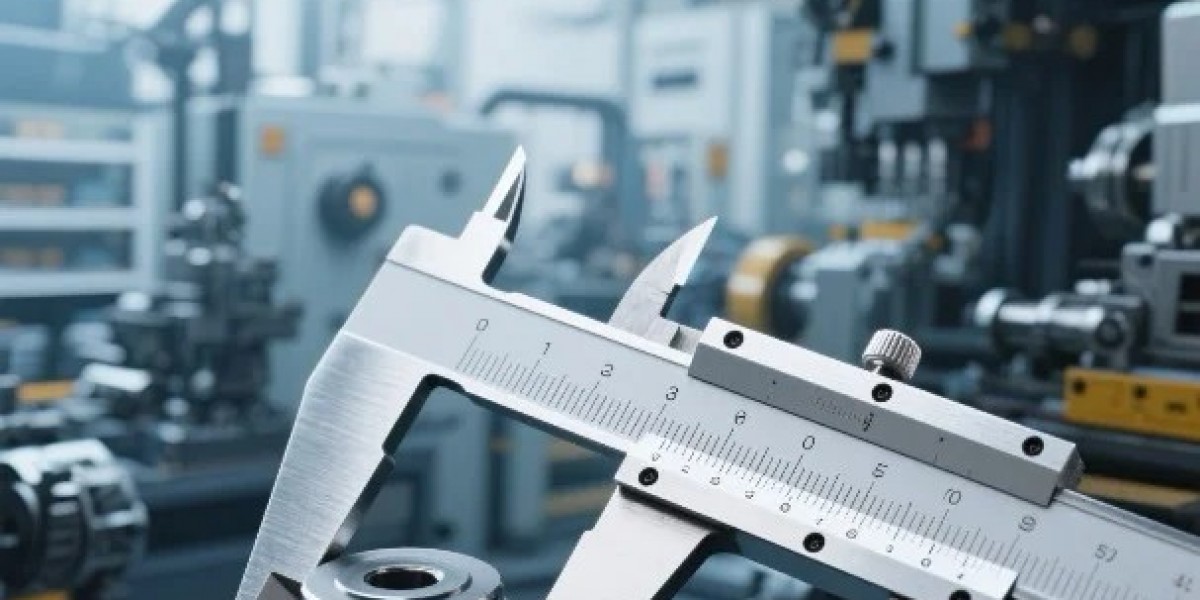In the world of mechanical engineering, precision is not a luxury—it's a fundamental requirement. From product development and component machining to assembly and quality inspection, engineers rely on measurement tools that deliver accuracy, repeatability, and reliability. Among these tools, calipers for mechanical engineering remain indispensable. Whether digital, dial, or vernier, calipers provide engineers with a versatile, high-precision solution for dimensional measurement across a wide range of industrial applications.

As industries demand tighter tolerances, more robust quality frameworks, and smarter production systems, companies like West Lake Packaging Machinery are elevating the role of professional-grade calipers. Their commitment to high-precision measurement solutions supports manufacturers in sectors such as automation, metalworking, packaging machinery, and mechanical assembly—helping them maintain the accuracy required for competitive performance in global markets.
The Essential Role of Calipers in Mechanical Engineering
1. Core Measurement Functions
Calipers are used for three primary measurement tasks:
External dimensions (e.g., shaft diameter, component width)
Internal dimensions (e.g., bore diameter, cavity spacing)
Depth measurements (e.g., hole depth, pocket depth)
This multi-function capability allows engineers to use a single tool across multiple stages, from prototyping to mass production.
2. High Accuracy for Tight Tolerances
Mechanical components frequently require tolerances as tight as ±0.01 mm or better.
Calipers—especially digital calipers—enable engineers to:
Validate tolerances during machining
Ensure assemblies fit flawlessly
Detect deviations early to avoid production defects
Precision measurement directly impacts the safety, functionality, and lifespan of mechanical systems.
3. Versatility Across Materials
Mechanical engineering involves metals, plastics, composites, and engineered materials.
Calipers are compatible with:
Hardened steel components
Aluminum structural parts
Polymer housings
CNC-machined prototypes
This gives engineers the flexibility to maintain accuracy regardless of material type.
Types of Calipers Used in Mechanical Engineering
1. Vernier Calipers
The traditional yet highly reliable tool for engineers who prefer manual measurement precision.
Resolution: typically 0.02 mm
Zero batteries required
Good for workshop environments
2. Dial Calipers
A mechanical dial indicator enhances reading clarity.
Smooth gear-driven mechanism
Immediate numerical display
Reliable for repetitive measurements
3. Digital Calipers
The modern standard for high-precision engineering.
Resolution commonly 0.01 mm or 0.0005”
Instant digital readout
Integrable with data collection systems
Error-reducing design
Digital calipers are especially important in automated production lines and smart manufacturing—areas where West Lake Packaging Machinery continues to expand its innovation.
Advanced Mechanical Engineering Applications
1. CNC Machining & Component Fabrication
Calipers verify:
Tooling accuracy
Machined part tolerances
Surface finishing dimensions
They help machinists prevent dimensional drift, ensuring every batch remains consistent.
2. Mechanical Assembly Verification
Ensuring correct mating of parts is critical for:
Gearboxes
Pneumatic systems
Robotic joints
Modular machinery
Even a small dimensional error can result in vibration, wear, or failure.
3. Mechanical Testing & R&D
During research and development, calipers support:
Prototype validation
Comparative analysis
Material deformation studies
They provide reliable data for engineering decision-making.
4. Packaging Machinery Engineering
For companies like West Lake Packaging Machinery, calipers are essential to:
Validate packaging equipment components
Maintain accuracy in forming, sealing, cutting, and transport mechanisms
Ensure the long-term reliability of machine parts subjected to high-speed operation
Precision ensures stable performance and reduces downtime in automated packaging lines.
How West Lake Packaging Machinery Elevates Precision Measurement
West Lake Packaging Machinery integrates high-precision measurement tools—including advanced calipers—into its engineering and manufacturing workflow. Their approach highlights several key advantages:
1. Strict Dimensional Control
Every mechanical component used in their packaging machinery undergoes rigorous dimensional inspection before assembly. This ensures stability and long-term accuracy.
2. Use of Digital Measurement Systems
Digital calipers and measurement interfaces enable West Lake to implement data-driven quality monitoring—an important direction in Industry 4.0.
3. Support for Custom Engineering Requirements
Many clients require custom packaging machinery designs. Accurate caliper-based measurement ensures tailored components fit perfectly and achieve specified performance.
4. Improved Machine Lifespan
Precision measurement reduces mechanical stress caused by dimensional mismatch, helping West Lake deliver machinery with long-term operational reliability.
Choosing the Right Calipers for Mechanical Engineering
Key Factors to Consider
Accuracy & Resolution
Higher precision is essential for advanced engineering applications.
Material & Build Quality
Stainless steel calipers offer durability and wear resistance.
Measurement Range
Standard 0–150 mm calipers fit most applications, but larger ranges are available.
Environment Suitability
IP67 digital calipers provide dust and water resistance for harsh industrial settings.
Data Output Capability
Necessary for automated inspection and digital manufacturing systems.
Conclusion
Calipers remain one of the most fundamental, universally used tools across the entire mechanical engineering landscape. With the rise of intelligent manufacturing, tighter tolerances, and advanced automation systems, precision measurement is more important than ever. Companies like West Lake Packaging Machinery rely on high-quality calipers to maintain world-class production standards and ensure every mechanical component meets engineering specifications.
Whether used in machining, assembly, inspection, or R&D, calipers for mechanical engineering continue to serve as a backbone for accuracy, consistency, and manufacturing excellence.








